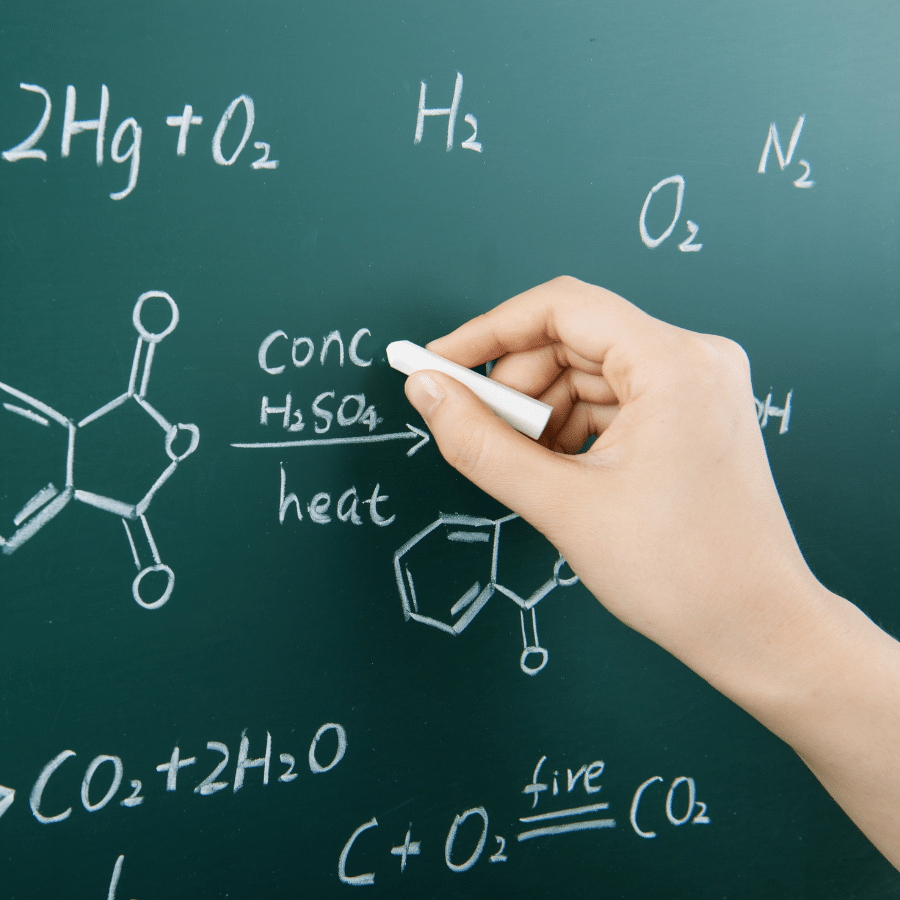AP Chemistry Tuition

Our tutors graduated from top universities








Overview
Customized curriculum
Choose one or more subjects, and we'll find a tutor who can make sure you're prepared.
Flexible
Take lessons only when you need them—as little or as many as necessary until you feel confident.
Private lesson
No need to accommodate other students. Learning is customized your perfect pace and difficulty so you are always improving.
About AP Chemistry
The objective of AP Chemistry courses is to provide high school students with a thorough and in-depth comprehension of fundamental chemistry principles and concepts. These courses aim to accomplish several key objectives:
- Comprehensive Understanding: To equip students with a deep and comprehensive understanding of fundamental chemical principles and concepts, enabling them to tackle complex chemical problems.
- Critical Thinking: To foster critical thinking and problem-solving skills in the context of chemistry, encouraging students to analyze and synthesize information to solve real-world chemical challenges.
- Laboratory Experience: To offer hands-on laboratory experiences that reinforce theoretical knowledge, allowing students to apply scientific methods and gain practical skills in experimentation.
- College-Level Preparation: To prepare students for college-level chemistry courses and related STEM fields by covering topics and concepts commonly encountered in introductory college chemistry.
- Exam Readiness: To ensure that students are well-prepared for the AP Chemistry exam, which can earn them college credit and advanced placement, opening doors to advanced coursework.
- Real-World Applications: To demonstrate how chemistry concepts are applied in various practical and scientific contexts, helping students see the relevance of chemistry in their lives.
- Quantitative Skills: To develop strong quantitative and mathematical skills for chemistry-related calculations, essential for accurate analysis and problem-solving in chemistry.
- Scientific Communication: To enhance students’ ability to communicate scientific ideas and findings effectively, promoting clear and concise scientific communication skills, crucial in scientific research and academia.
Description
Are you striving for success in AP Chemistry? Well, your journey to excellence starts right here! Our unique AP Chemistry tutoring program is tailor-made for you. Immerse yourself in personalized one-on-one learning with a dedicated tutor who will guide you in mastering crucial chemistry concepts and problem-solving techniques. Plus, enjoy personalized progress assessments through practice tests.
What makes us stand out? Unlike traditional group classes, our program adjusts to your pace and specific requirements. No more unnecessary revisiting of familiar topics. Embrace continuous improvement with the perfect mix of challenges and support.
Join us today and jumpstart your journey to AP Chemistry excellence!
TigerCampus explains the AP Chemistry exam format:
The AP Chemistry exam consists of two main sections, each evaluating different aspects of a student’s chemistry knowledge and skills.
Multiple-Choice Section:
- Duration: 1 hour and 30 minutes
- Number of Questions: Approximately 60 questions
- Weight: It contributes 50% to the total exam score.
In the multiple-choice section, students encounter a wide array of questions covering various chemistry topics. This section assesses their comprehension of chemistry concepts, including both theoretical understanding and factual knowledge. Additionally, it may include questions that require students to analyze data, interpret graphs, and work with chemical equations.
Free-Response Section:
- Duration: 1 hour and 45 minutes
- Number of Questions: Comprising 7 questions (3 long free-response questions and 4 short free-response questions)
- Weight: It contributes 50% to the total exam score.
The free-response section challenges students to apply their chemistry knowledge to specific scenarios and problem-solving. It includes a mix of long free-response questions, which often demand more extensive responses involving explanations, calculations, and sometimes even laboratory work, and short free-response questions that tend to be more focused and may involve calculations or brief explanations.
Scoring:
The AP Chemistry exam is scored on a scale ranging from 1 to 5, with 5 representing the highest achievable score. Generally, a score of 3 or higher is considered a passing score and can potentially earn students college credit and advanced placement in college courses related to chemistry. However, the specific score requirements for credit and placement may vary depending on the college or university.
For the most up-to-date information about the AP Chemistry exam, including potential format or content changes, students are advised to refer to the official College Board website.
What you will learn
- Successful strategies for excelling in AP Chemistry tests.
- A thorough grasp of the AP Chemistry exam's content.
- Insightful information on the question formats specific to each section of the AP Chemistry exam.
Requirements
- AP courses are for high school or equivalent students.
- Prior to AP Chemistry, a strong grasp of basic chemistry concepts, like chemical reactions, stoichiometry, atomic structure, and the periodic table, is vital.
- Math proficiency, including algebra and some calculus exposure, is advantageous for AP Chemistry due to its quantitative nature.
Subjects
AP Chemistry
- Chemical Foundations
- Atomic Structure
- Chemical Bonding and Molecular Structure
- Chemical Reactions and Stoichiometry
- Gas Laws
- Thermochemistry
- Electronic Structure of Atoms
- Periodic Trends
- Chemical Kinetics
- Chemical Equilibrium
- Acid-Base Chemistry
- Solubility and Complex Ion Equilibria
- Chemical Thermodynamics
- Electrochemistry
- Nuclear Chemistry
- Chemical and Physical Properties of Substances
- Intermolecular Forces and Properties of Liquids and Solids
- Chemical Analysis and Instrumentation
- Organic Chemistry
Subjects
- Art History
- Biology
- Calculus (AB & BC)
- Chemistry
- Chinese Language and Culture
- Comparative Government & Politics
- Computer Science A
- Computer Science Principles
- English Language & Composition
- English Literature & Composition
- Environmental Science
- European History
- French Language and Culture
- German Language and Culture
- Human Geography
- International English Language
- Italian Language and Culture
- Japanese Language and Culture
- Latin
- Macroeconomics
- Microeconomics
- Music Theory
- Physics 1: Algebra-based
- Physics 2: Algebra-based
- Physics C: Electricity and Magnetism
- Physics C: Mechanics
- Psychology
- Spanish Language and Culture
- Spanish Literature and Culture
- Statistics
- Studio Art (2-D, 3-D, & Drawing)
- U.S. Government & Politics
- U.S. History
- World History: Modern
How it works
1
Request a tutor
Let us know your goals and age range. We'll figure out a plan to help get you there.
2
Match with a tutor
We'll recommend you a tutor based on your needs and goals, or you can request a specific tutor.
3
Start a free trial
Experience a free trial lesson with your new tutor and see if your learning style matches.
4
Keep it up!
If everything went well, sign up to keep going! You can choose the pacing of the lessons
1Request a tutor
Let us know your goals and age range. We'll figure out a plan to help get you there.
2Match with a tutor
We'll recommend you a tutor based on your needs and goals, or you can request a specific tutor.
3Start a free trial
Experience a free trial lesson with your new tutor and see if your learning style matches.
4Keep it up!
If everything went well, sign up to keep going! You can choose the pacing of the lessons
Need more info?
Let's talk.
Leave your phone number, and we’ll call you back to discuss how we can help you.








